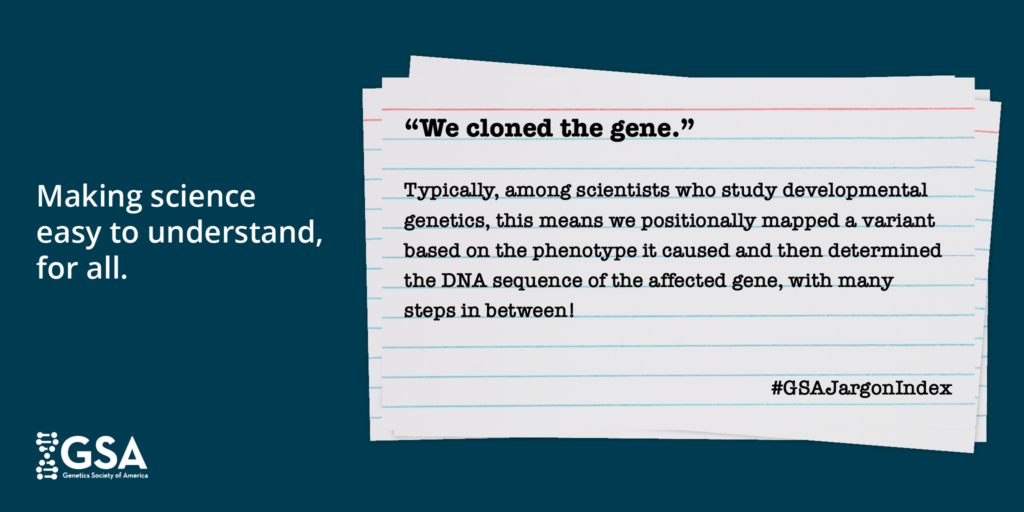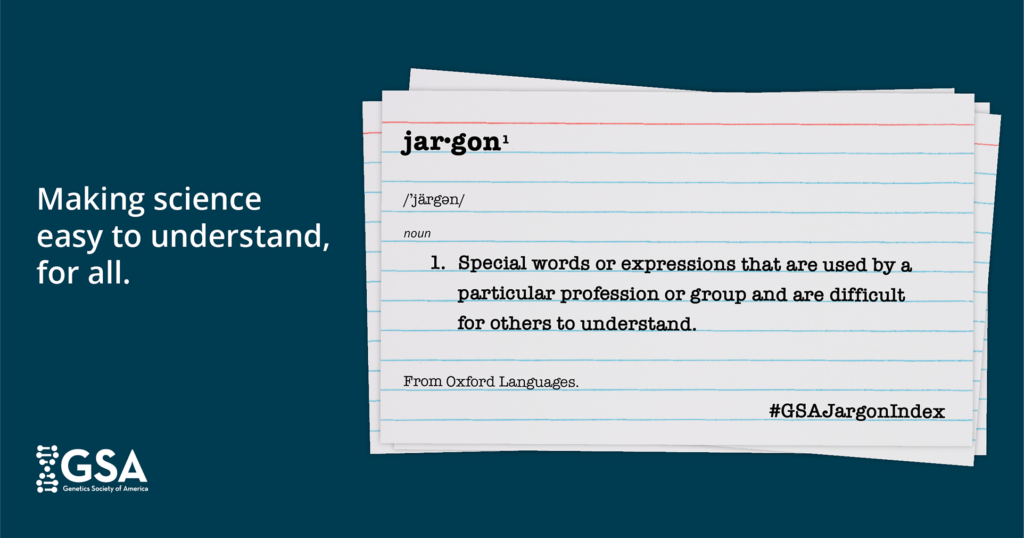Have you ever felt confused or excluded due to hyperspecialized terminology in the field? When you’re explaining your research to non-scientists, does jargon get in the way? You’re not alone! Help us break down barriers and build a bridge to scientific knowledge with your input. Welcome to our Index of Jargon campaign!
How can you contribute?
- Email communications@genetics-gsa.org with your favorite scientific jargon along with a brief explanation.
- Share your own terms or phrases that leave you scratching your head on social media, using the hashtag #GSAJargonIndex.
Why should you contribute?
You’ll help us create a fantastic resource. We’ll also highlight your submissions on social media and feature the most intriguing ones at #TAGC24 where you can chat with other scientists about the campaign. Together, we can make science easy to understand for all.
We’ll start!

2022 GSA President Jane Hubbard nominated the phrase: “We cloned the gene.” According to the NHGRI, cloning in our field involves using scientific methods to make identical (or close) copies of an organism, cell, or DNA sequence. But there’s more to it! Check her explanation in the graphic below.

But wait … aren’t “positionally mapped” and “phenotype” jargon, too? Did we just use jargon to explain jargon?
Hubbard adds, “We found a specific change in the DNA sequence (‘variant’) of a gene that is responsible for an important process. We knew it was significant beforehand because we saw the variant caused a heritable, visible alteration (‘phenotype’) in the organism compared with other individuals who don’t carry this specific DNA sequence variant. We use DNA sequencing, classical genetics (crossing individuals with and without the change, assessing how it’s inherited relative to other variants at known locations in the genome that cause different phenotypes), or both. We then do more tests to ensure we’ve found the exact DNA sequence variant responsible for the observed phenotype.”
So, we have some questions for you!
- What comes to mind when you hear, “We cloned the gene”? Is it confusing?
- What’s your suggestion for more inclusive or clear language?
And of course, what’s your example of common jargon? Email us at communications@genetics-gsa.org or post your own on social media, tag us, and don’t forget to use #GSAJargonIndex!































